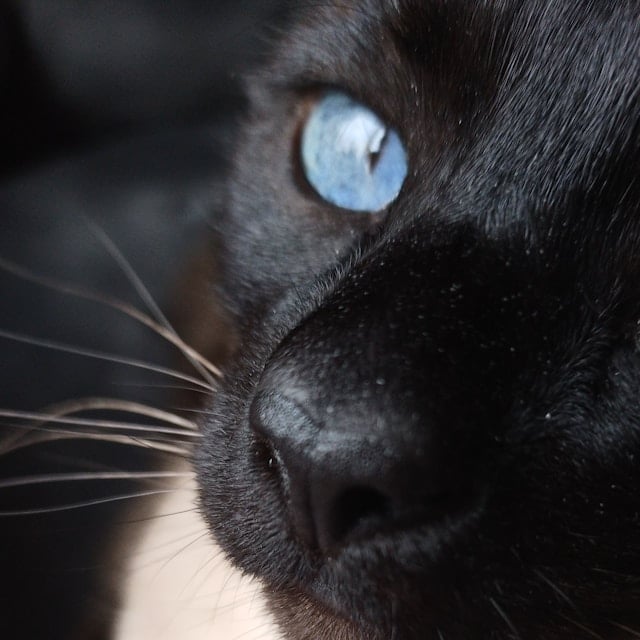Anxiety in cats, particularly in Siamese breeds, is a pressing issue for many pet owners. It can manifest through various symptoms, from behavioral changes to health issues. You may notice your cat displaying signs of discomfort, or you may even suspect separation anxiety. But what can you do to help your pet? What kind of food, medications, or treatments are recommended? Let’s dive into the subject and explore the best approaches to treating anxiety in Siamese cats.
Identifying Anxiety in Your Siamese Cat
Before you can treat anxiety, you first need to recognize its signs. Anxiety in cats is not as apparent as it may be in dogs, so understanding your Siamese cat’s behavior is crucial. Siamese cats are known for their outgoing nature, vocalization, and attachment to their owners. Changes in these behaviors can indicate anxiety.
Have you seen this : Can You Train a Ferret to Perform Tricks Using Positive Reinforcement?
Anxiety can manifest as excessive grooming, aggression, hiding, or changes in appetite. Some Siamese cats may also show signs of separation anxiety, such as destructive behavior when left alone. Other signs can be more subtle, like dilated pupils, increased heart rate, or sudden weight loss.
If your Siamese cat exhibits any of these symptoms, it’s time to consult with a vet. They will rule out physical health issues that could be causing these behaviors and can confirm if your cat is suffering from anxiety.
This might interest you : How to Prepare Your Cat for a Comfortable and Safe Long-Distance Car Ride?
Using Behavioral Modification to Treat Anxiety
Once you’ve identified that your Siamese cat is dealing with anxiety, it’s time to look at the possible treatments. One of the most common approaches is behavioral modification. This treatment involves changing your cat’s response to the situations or triggers that cause anxiety.
Behavioral modification usually begins with identifying the source of your cat’s anxiety. It might be a change in routine, a new pet, or even a move to a new home. Once the trigger has been identified, it can be gradually desensitized or counter-conditioned.
Desensitization involves gradual exposure to the anxiety-inducing situation until your cat becomes accustomed to it. Counter-conditioning, on the other hand, associates the trigger with positive experiences, effectively replacing the anxiety with more pleasant emotions.
Remember, behavioral modification takes time and requires patience and consistency. It’s also best implemented under the guidance of a professional animal behaviorist to ensure it’s done correctly and safely.
Medication as a Potential Solution
In some cases, behavioral modification might not be enough, and medication may be required to manage your Siamese cat’s anxiety. It’s important to note, however, that medication should always be the last resort and administered under the direct guidance of your vet.
The use of medication can range from short-term situational use (for instance, during a move or visit to the vet) to long-term use in severe cases of anxiety. Commonly used medications include selective serotonin reuptake inhibitors and benzodiazepines.
These medications can help reduce anxiety and allow your cat to respond better to behavioral modification techniques. However, they can have side effects, and it’s crucial to monitor your Siamese cat while they are on medication.
The Role of Diet in Managing Anxiety
Believe it or not, the food your Siamese cat eats can also play a significant role in managing anxiety. Certain nutrients, like tryptophan and B-vitamins, are known to have calming effects. Thus, a diet rich in these nutrients could potentially help reduce anxiety levels.
Many commercial cat foods are formulated to cater to a cat’s nutritional needs, but not all brands contain these anxiety-reducing nutrients. Therefore, it’s essential to read labels carefully and consult with your vet about the best diet for your anxious Siamese cat.
In addition to a balanced diet, certain supplements may also help manage anxiety. Omega-3 fatty acids, for example, are known for their anti-inflammatory properties and can help promote brain health. However, it’s crucial to remember that supplements should always be used in conjunction with a balanced diet, not as a replacement for it.
Alternative Therapies for Siamese Cats with Anxiety
Aside from conventional treatments, alternative therapies can also be beneficial in managing your Siamese cat’s anxiety. These can include methods like pheromone therapy, acupuncture, and even massage therapy.
Pheromone therapy utilizes synthetic feline facial pheromones (which cats naturally produce to mark a place as safe) to create a calming environment. Products like diffusers, sprays, and collars can be used around your home to help reduce anxiety.
Acupuncture and massage therapy, while less common, can also aid in anxiety management. Acupuncture can help balance your cat’s energy flow and promote relaxation, while massage can reduce stress levels and promote bonding between you and your cat.
Remember, however, that these therapies should not replace traditional treatments but rather complement them. It’s always crucial to work closely with a professional to determine the best course of action for your Siamese cat’s anxiety.
Litter Box Behaviors and Anxiety in Siamese Cats
Another key aspect to examine when deciphering anxiety in Siamese cats is their behavior around the litter box. Siamese cats are known for their cleanliness, and any drastic changes in their litter box habits can signal stress or anxiety.
Excessive burying, refusing to use the litter box, or urinating outside of it can be signs of anxiety. This behavior may be caused by various factors, such as a change in the type of litter used, location of the box, or even a conflict between multiple cats over litter box use.
If your Siamese cat showcases unusual litter box behaviors, it’s critical to eliminate any medical problems first. Conditions like urinary tract infections can cause similar symptoms, so it’s essential to consult with your vet. If there’s no physical health issue, then it’s likely that your cat is dealing with anxiety.
If anxiety is indeed the culprit, consider making changes to help your cat feel safe and secure. This could mean adding extra litter boxes, moving them to a quieter location, or switching to a different type of litter.
Remember to make these changes gradually, as sudden alterations can exacerbate your cat’s anxiety. Patience is key when dealing with cat anxiety, as they may take time to adjust to any changes.
The Importance of Enrichment for Anxiety in Siamese Cats
Enrichment plays a vital role in managing anxiety in Siamese cats. Providing a stimulating and engaging environment can help reduce anxiety and improve your cat’s overall wellbeing.
Enrichment can be achieved in various ways. Interactive toys that stimulate your cat’s hunting instincts, scratching posts, and climbing trees can all provide mental and physical stimulation. Engaging your Siamese cat in play and spending quality time with them can also significantly reduce stress and anxiety.
If your cat is suffering from separation anxiety, consider using puzzle feeders that will keep them occupied when you’re not home. These feeders not only provide mental stimulation but can also slow down eating and prevent digestive issues.
Finally, providing quiet and comfortable resting places can help your Siamese cat feel secure and relaxed. Cats often prefer high perches from where they can observe their surroundings, so consider adding some elevated resting spots.
Keep in mind that each Siamese cat is unique, so it’s important to tailor the enrichment to your cat’s preferences. Flexibility is crucial, and what works for one cat may not necessarily work for another.
Conclusion
There’s no denying it: anxiety in Siamese cats can be a challenge to manage. However, by being observant, patient, and proactive, you can help your feline friend lead a happier, less anxious life.
Identifying the signs of anxiety, such as changes in behavior, eating habits, and litter box use, is the first step. Next, implementing behavioral modifications, potentially introducing anxiety medications, optimizing their diet, and using alternative therapies can all contribute to managing anxiety.
Remember, it’s essential to work closely with your vet and potentially an animal behaviorist to determine the best course of action. Anxiety in cats, while difficult, is not insurmountable. With the right approach, your Siamese cat can thrive despite their anxiety.






